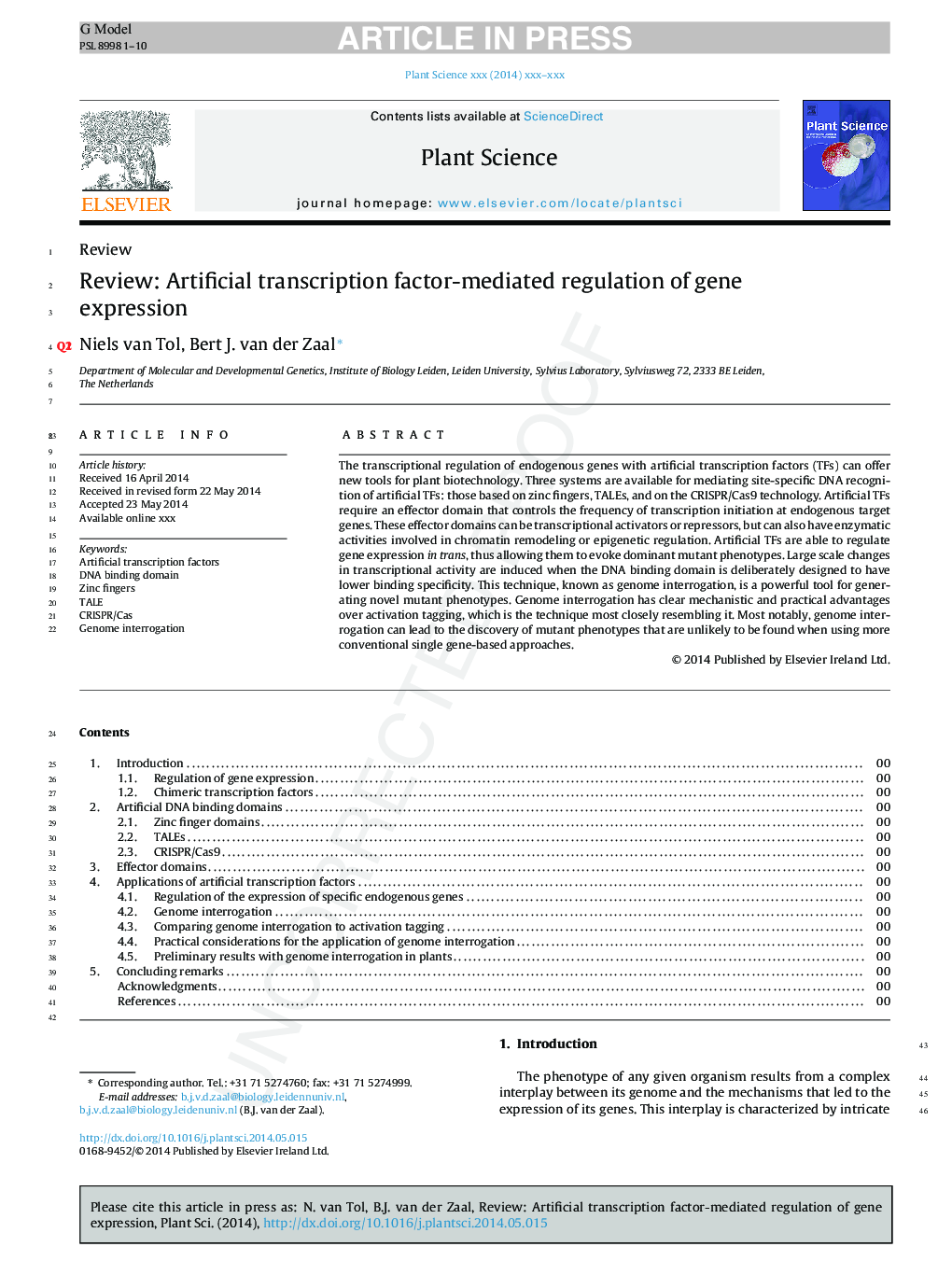| Article ID | Journal | Published Year | Pages | File Type |
|---|---|---|---|---|
| 8358240 | Plant Science | 2014 | 10 Pages |
Abstract
The transcriptional regulation of endogenous genes with artificial transcription factors (TFs) can offer new tools for plant biotechnology. Three systems are available for mediating site-specific DNA recognition of artificial TFs: those based on zinc fingers, TALEs, and on the CRISPR/Cas9 technology. Artificial TFs require an effector domain that controls the frequency of transcription initiation at endogenous target genes. These effector domains can be transcriptional activators or repressors, but can also have enzymatic activities involved in chromatin remodeling or epigenetic regulation. Artificial TFs are able to regulate gene expression in trans, thus allowing them to evoke dominant mutant phenotypes. Large scale changes in transcriptional activity are induced when the DNA binding domain is deliberately designed to have lower binding specificity. This technique, known as genome interrogation, is a powerful tool for generating novel mutant phenotypes. Genome interrogation has clear mechanistic and practical advantages over activation tagging, which is the technique most closely resembling it. Most notably, genome interrogation can lead to the discovery of mutant phenotypes that are unlikely to be found when using more conventional single gene-based approaches.
Related Topics
Life Sciences
Agricultural and Biological Sciences
Plant Science
Authors
Niels van Tol, Bert J. van der Zaal,
